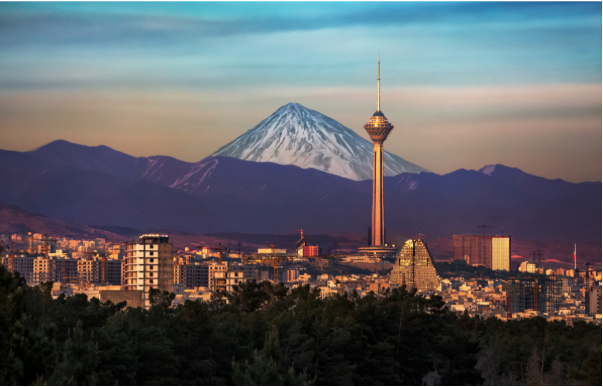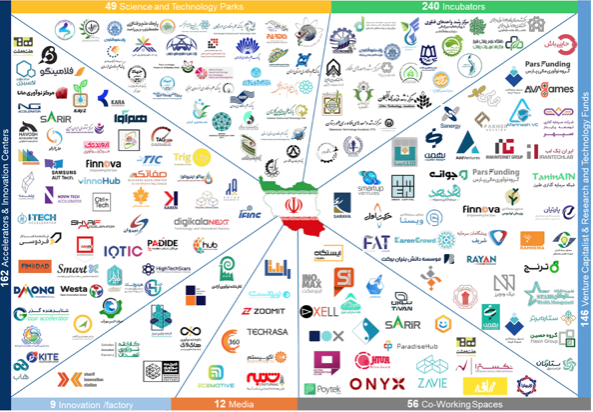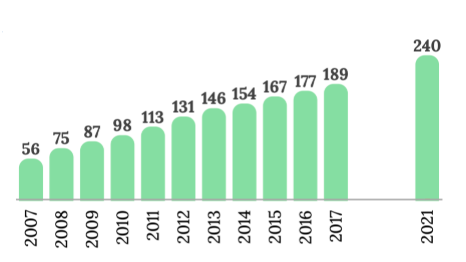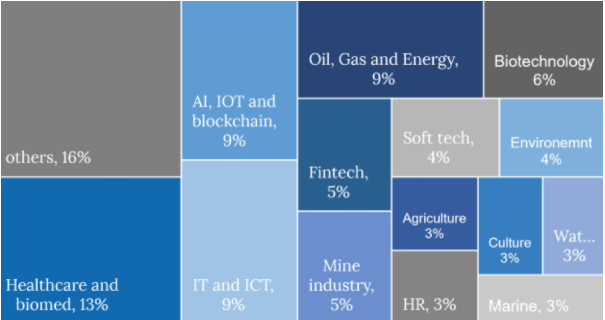
Iran : the potential of a startup nation
Few people are as resilient as the Iranians.
These words capture in history and eternity the way in which a people with such a rich and ancient history meets the challenges it faces with determination.
Iran's dependence on hydrocarbons is of paramount importance. In 2019, oil exports accounted for around 70% of the country's total revenues. To meet the challenges of economic diversification and climate transition, Iran is focusing on developing an entrepreneurial ecosystem in which a wealth of innovative talent. To achieve this, Iran's strategy is based on four main pillars: investment, support structures, an efficient education system and a network.

Investment
In Iran, the main types of investment come from venture capital funds, business angels, equity crowdfunding and technology research funds. In November 2021, there were an estimated 85 venture capital investment funds in the country. In addition to these funds, other initiatives such as RTF, a non-governmental organization, play a vital role in providing financial support and facilitating access to strategic advice. This holistic approach helps to strengthen the viability and competitiveness of startups in a growing economic environment.
Support structures
Incubators play a crucial role in the Iranian entrepreneurial landscape, facilitating the emergence of numerous startups. They are an essential part of the entrepreneurial ecosystem, enabling project leaders to turn their ideas into reality, with personalized support from experts in the field. The emergence of the first Iranian incubator in 2000 marked the start of a growing trend, with over 250 incubators currently operating throughout the country.

Most of these incubators are affiliated with science and technology parks and universities, helping to strengthen the links between innovation, research and entrepreneurial development. Incubators are fundamental to providing startups with an environment conducive to learning and access to resources.
Accelerators and innovation centers
Among Iran's startup support mechanisms, accelerators are of crucial importance. Their support, in terms of equipment, finance and knowledge, increases the chances of success for young startups. Accelerators in Iran are mainly private-sector structures. Their efficiency has been unanimously recognized by the Iranian government and the entrepreneurial ecosystem, leading to a shared determination to develop them. Avatech, the first accelerator in Iran, was founded in 2014, and marked the start of the first wave of accelerators establishments in 2016. Now, the total number of innovation centers and accelerators in Iran is estimated at 162. Moreover, 69% of accelerators in Iran are specialized in specific sectors, as shown in the graph below presenting the distribution of accelerators specialized in different industries.

US sanctions: resilience and breath of life.
U.S. sanctions have profoundly affected Iran's entrepreneurial ecosystem, especially since the U.S. withdrew from the Vienna agreements in May 2018. Since then, foreign investors have shown a reticence to invest in Iran due to the political and financial risks associated with the country's situation. Even domestic investors have scaled back their commitments in the country. Meanwhile, Iranian startups have been denied access to many European and American hardware and software solutions as a result of these sanctions, hampering the development of platforms and applications. In addition, foreign companies, whether customers or suppliers, are unable to acquire or integrate Iranian startups' products into their solutions, for fear of violating US sanctions.
However, these sanctions have also strengthened the country and its people's determination to make it on their own. With their backs to the wall, Iranian entrepreneurs have shown how frugality can be the driving force for great achievements. The Iranian entrepreneurial ecosystem was built in particularly difficult conditions, making it more resilient than ever. Isolation from foreign competitors has given start-ups the opportunity to develop in a protected environment, with less competition and more stability. Let's take a concrete example. Sanctions concerning the ban on online payment systems and transaction methods led to the emergence of numerous Iranian startups seeking to solve this problem. What was then a dead end, turned into a salient opportunity for entrepreneurs who created and developed in-house solutions for transaction methods. As a result, and unlike many other nations, Iranians have developed their own local version of international startups. Here's an infographic presenting some of Iran's well-known startups and their international equivalents.

In addition, the entrepreneurial ecosystem has been consolidated through a national spirit of mutual support, encouraging actors to help each other and collaborate. This state of mind is a determining factor in a people's ability to overcome problems. In response to the sanctions, the government has also mobilized with initiatives such as the National Development Fund and the National Innovation Fund, aimed at supporting startups, allocating loans and grants to existing and emerging startups.
Sources :



